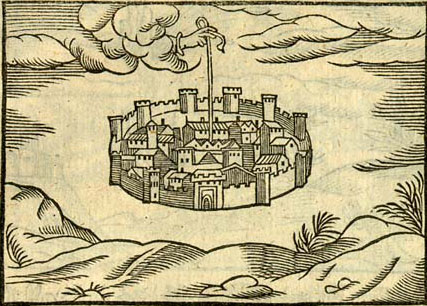There is a political faction in the United States whose members believe that their most important religious duty is to create (a very narrow and conservative version of) the Kingdom of Heaven on Earth. I probably don’t need to name them; they’re well known enough, and some of the readers of this blog probably know more about them than I do.
These people believe that in order to save the world, they must manipulate the state: passing laws and enforcing practices designed to enshrine christian values, and to stress and disrupt the lives of people with non-Christian identities, so that non-Christians (this includes Catholics, in their view) will convert to their brand of christianity or else dwindle in influence to political insignificance. Their plan also includes inserting themselves into other areas of culture: the family, the entertainment industry, the military-industrial complex, and so on. The aim is to create a Christian theocracy, and install themselves as its ruling class.
Another way to save the world, in their view: to increase the pain and suffering in the world to such a pitch that God would “have” to return.
A war would do that. Moreover, a war in the middle east would have symbolic value for them: it is the area where, according to biblical prophesy, the final battle between good and evil will take place. Further: it is a war that these people think they can win.
If they get their war and win it, they can try to create their Kingdom of Heaven on Earth, not only in America, but also around the world. And if they lose it, they increase the pain in the world and so accelerate Christ’s return. Thus, in their worldview, they cannot lose.
I suspect that Trump’s decision to leave the Iran Nuclear Deal is a step toward that war. I think he made that decision in order to please the members of that faction in his administration.
I’m worried.
But I am always confident in the basic goodness of the overwhelming majority of people on earth, of every religion and every culture. The best parts of religion grew from our inherent basic goodness, along with the best of our music, art, drama, government, technological progress, and civilization itself. And then those things turned around and reinforced our basic goodness, in virtuous circle that’s been going on now ever since we learned to walk on two feet.
I see that confidence not only based on observable facts, but also as a kind of moral postulate: it is ethically better to believe that people are basically decent, than to believe they’re not. Even so, goodness is fragile (remember your Iris Murdoch) and it needs good people to take care of each other, to work together, and to speak out and to act against evil.
So, what are you doing, to help preserve some human goodness in the world?
And before you ask: no, I’m not implying you’re doing nothing. But I think it might be helpful for my friends to share with each other some notes about what they’re doing. Otherwise, we might not know what others around us are doing. We might not know that this world really is better than it often appears. It might be harder to imagine that it can be better still, if only we want it to be, and if we do something about it. So, what are you doing? Organizing voters, lobbyists, or campaigns? Attending rallies? Volunteering somewhere? Doing research into the true state of the world, and sharing its results? Helping other activists preserve their confidence, their initiative, their physical and psychological health? Helping to preserve your own?
As for me, I’m working to reclaim civilization (from the fascists, neo-Nazis, religious fundamentalists, violent misogynists, antifeminists, the sellers of hate and fear and ignorance, all those gangs who want to kick people like you out of it).
Whatever you’re doing, keep doing it. You’re going to save the world.


2 Responses to What are you doing?